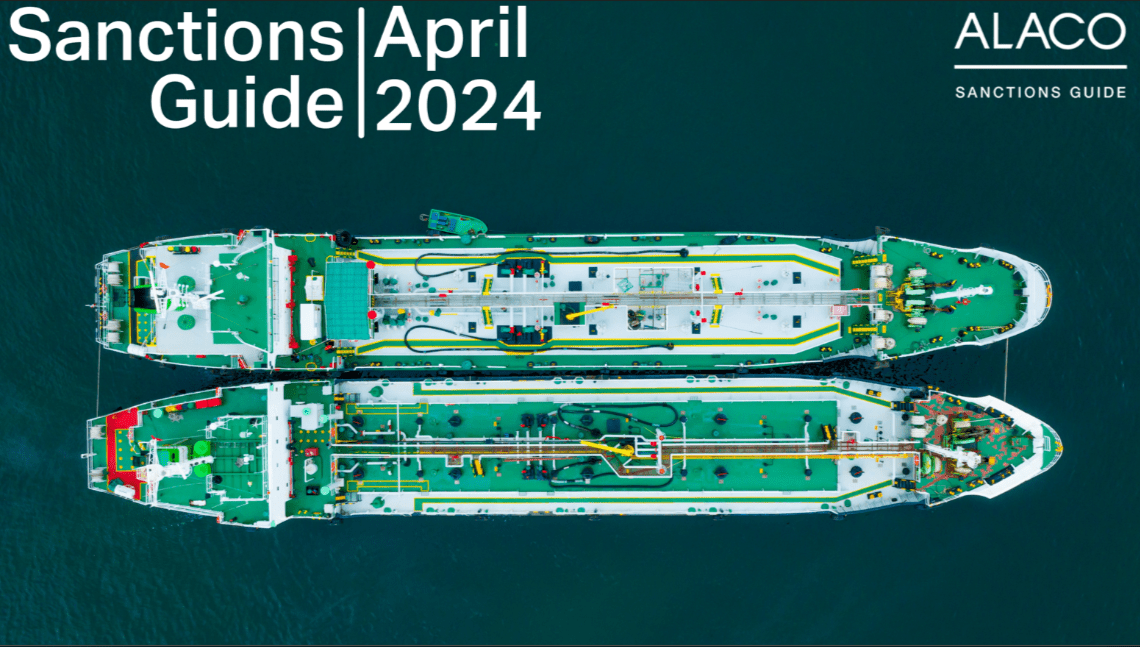April 2024 saw a wave of designations by the US and UK following the 13th April Iranian drone and missile strikes on Israel. Iran was also targeted via new sanctions restricting the export of Iranian drones to the militaries of China and Russia. Meanwhile, counter-terrorism and human rights-focused designations have continued throughout the month in relation to the conflict in Gaza.
The US easing of restrictions against Venezuela came to an end in April with the reimposition of sanctions on its oil and gas sector. OFAC also renewed its cyber and Russia programmes, with the EU also extending its Russia and Bosnia & Herzegovina sanctions regimes. A UN vote to extend sanctions against DPRK was blocked by a Russian veto.
It was a busy month in the world of enforcement and legal challenges. In the month that the General Court of the EU annulled the 2022 designations of Russian businessmen Mikhail Fridman and Petr Aven, challenges to designations were rejected by courts in the EU, US and UK. Several other individuals detailed throughout this update in the US, Germany and Estonia were charged or arrested for alleged breaches of US and EU sanctions.
On 12th April the EU Council approved a directive criminalising sanctions violations, which comes into force in mid-May. In the US, the House of Representatives has passed two bills on the statute of limitations for sanctions violations and on a Ukrainian support fund, which are now waiting to be passed through the Senate. The EU also passed a resolution to support Ukraine to recover from damage caused by the war. US President Joe Biden has said he will sign into law two bills relating to Iran and the opioid crisis.
Iran
- Following the drone and missile attack targeting Israel on 13th April, the US and UK took joint action against individuals and entities connected to the Iranian government, military and key sectors of the economy. The UK designated six entities and seven individuals, whilst the US designated 16 individuals and 11 entities. The US also imposed additional controls to restrict Iran’s access to low-level technologies, such as basic commercial grade microelectronics.
- Designations aiming to limit the procurement and export of Iranian drones and unmanned aerial vehicles (“UAVs”) remain a focus of western sanctions. In mid-April the US designated 11 entities for supporting the militaries of China, Russia, and Iran via the procurement of UAVs, dual-use components, as well as the export of prohibited items from the US to Iran. OFAC later designated a further eight individuals, 15 entities, five ships, and one aircraft alleged to be involved in the sale of UAVs for Iran’s military. The UK followed suit, sanctioning two individuals and four entities allegedly involved in the production of Iranian drones.
- The US imposed sanctions on Dubai-based Oceanlink Maritime DMCC and 13 of its vessels for facilitating the shipment of Iranian commodities on behalf of the Iranian military. OFAC also designated two companies and four individuals allegedly engaging in malicious cyber activity for the Iranian Islamic Revolutionary guard Corps Cyber Electronic Command. The EU, however, de-listed Iranian IT company Arvan Cloud, which had been sanctioned in November 2022 for alleged involvement in censorship by creating an Iranian version of the internet.
Sanctions Amendments
- Several sanctions programmes were due to expire in April. The US renewed its Cyber and Russia sanctions programmes. The EU renewed its Russia sanctions regime until 15th September 2024 and its Bosnia & Herzegovina programme until 31st March 2026. On 28th March the UN Security Council voted on the extension of the mandate of the DPRK Sanctions Committee’s panel of experts. Although 13 members voted to extend the programme, China abstained and Russia vetoed the extension.
- Having eased sanctions on Venezuela by permitting transactions involving its oil and gas sector, the US reimposed sanctions on the country from 17th April 2024. The reimposition is related to the US view that Venezuelan President Maduro has prevented democratic opposition.
- In relation to Russia, the UK and US this month prohibited the import and trade of aluminium, copper, and nickel of Russian origin on the London Metal Exchange and Chicago Mercantile Exchange, respectively. The US also drafted a new licence enabling the export of low-level medical devices to Russian, Belarusian, and Ukrainian citizens. The new UK legal services general licence came into effect on 29th April 2024, inter alia resetting the £500,000 legal fees cap to apply to each law firm instructed by the designated person rather than as an overall cap.
Legislation
- On 12th April the EU Council approved a directive criminalising sanctions violations. The directive enters into force on 19th May 2024. Member states will then have 12 months to incorporate provisions into their national legislation.
- On 23rd April US President Joe Biden confirmed he will sign Iran and fentanyl-related sanctions bills into law. These will target the offices of Iran’s Supreme Leader and President for human rights abuses, foreign persons transporting or processing Iran-origin petroleum products, and opioid traffickers in the US.
- The US House of Representatives passed two sanctions-related bills in April. One will extend the statute of limitations for civil and criminal sanctions from five years to ten years, and the other will allow the confiscation of Russian assets for a Ukraine support fund. The bills must now be passed by the Senate and signed by the President. The Parliamentary Assembly of the Council of Europe also unanimously passed a resolution calling for the seizure of Russian assets and the creation of an international compensation fund to pay for damage in Ukraine. Resolutions of the Council are recommendations to member states and are not binding.
Enforcement and Challenges
- Several individuals were arrested or charged in the last month for violations of sanctions regulations by US, German, and Estonian prosecutors. The US Department of Justice charged ten individuals for exporting millions of dollars’ worth of aircraft parts from the US to Venezuela’s state-owned oil company Petroleos de Venezuela SA, as well as Latvian broker Oleg Chistyakov for facilitating the sale of US avionics equipment to customers in Russia. Two Russian individuals also pleaded guilty in the US to conspiracy to acquire and export aviation technology to Russian airline companies. In Germany, prosecutors charged five individuals for exporting €111 million worth of gas turbines to Crimea. Germany separately issued arrest warrants for three individuals for allegedly purchasing and exporting dual-use products from Germany to China in violation of the Foreign Trade Act. Estonian journalist Svetlana Burtseva was arrested and detained in Estonia for allegedly breaching EU sanctions by working alongside sanctioned Russian media group Rossiya Segodnya.
- The General Court of the EU annulled the EU’s 2022 acts designating Russian businessmen Mikhail Fridman and Petr Aven, stating that the reasons for their designations at the time had failed to satisfy the listing criteria. In another case, The General Court of the EU rejected a challenge against restrictions placed on the import of Russian mica-based industrial products, including fire resistant cable tapes and aircraft insulation blankets. The US District Court for the District of Columbia rejected an application for a preliminary injunction against the designations of two former Afghan government officials. The UK Supreme Court dismissed an appeal against the decision of the Court of Appeal to grant an injunction against proceedings brought by Russian Gazprom subsidiary RusChemAlliance LLC (“RCA”) against UniCredit Bank GmbH for the non-payment of bonds issued to RCA due to sanctions. The final judgement is yet to be published.
- OFAC fined Thai plastic resin distributor SGC Plastics $20 million for 467 violations of sanctions on Iran. Between 2017 and 2018 SGC allegedly transferred $291 million for sales of Iranian-origin high-density polyethylene resin manufactured by a joint venture in Iran partly owned by state-owned National Petrochemical Company of Iran. The UK also issued fines totalling £2.3 million against one company for violating Russian sanctions and six unnamed companies for violating export controls. Separately, Luxembourg’s financial services regulator CSSF and the UK Gambling Commission handed down a €785,000 and £582,120 fine respectively to companies for compliance failings regarding sanctions.
- On 17th April a Russian Arbitration Court ordered the seizure of funds in JPMorgan bank accounts in Russia to satisfy VTB’s claim against JPMorgan for $439 million, reflecting the amount of VTB’s funds that were held in JPMorgan accounts in the US before being transferred to a frozen escrow account following the imposition of asset freeze measures on VTB. JPMorgan has commenced proceedings in US courts to prevent the seizure of its assets.
Designations and De-Listings
- The ongoing conflict in Israel and Palestine has been met with counter-terrorism and global human rights-related designations. In April the EU designated five entities and four individuals under its Global Human Rights Sanctions Regime for alleged human rights abuses against Palestinians and for involvement in the 7th October 2023 Hamas attacks in Israel. The US listed four Hamas officials as specially designated global terrorists, as well as two entities for their roles in raising funds for sanctioned individuals involved in violence in the West Bank. The US also designated Israeli citizen Ben-Zion Gopstein, the founder and leader of Lehava, an organisation whose members have allegedly assaulted Palestinian civilians.
- Elsewhere, the US Department of State sanctioned one entity from Belarus and three from China for allegedly supplying missile-related equipment to Pakistan’s long-range ballistic missile programme, as well as nine individuals for their involvement in hostage-taking in West Africa. OFAC designated 12 entities and 10 individuals under its Belarus sanctions programme and the UK designated three entities alleged to be funding the activities of military groups in Sudan.
- On 2nd April 2024 OFAC removed Ost-West Handelsbank SE (formerly VTB Bank Europe SE) from its Russia sanctions list, having been listed in February 2022 following the Russian invasion of Ukraine. On 19th April OFAC issued a General License unblocking the assets of and authorising transactions involving the bank and its subsidiaries. On 26th April OFAC de-listed a Turkish shipping company and vessel originally designated for violating the oil price cap.


